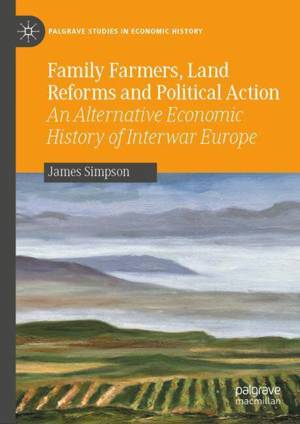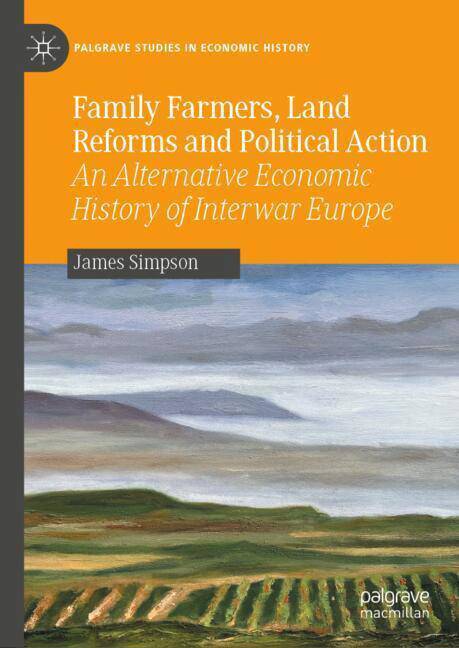
- Retrait gratuit dans votre magasin Club
- 7.000.000 titres dans notre catalogue
- Payer en toute sécurité
- Toujours un magasin près de chez vous
- Retrait gratuit dans votre magasin Club
- 7.000.0000 titres dans notre catalogue
- Payer en toute sécurité
- Toujours un magasin près de chez vous
Family Farmers, Land Reforms and Political Action
An Alternative Economic History of Interwar Europe
James SimpsonDescription
This book examines how European farmers responded to the economic and political challenges created by the First World War and the Great Depression. The difficulties of interwar Europe have been frequently explored, but rarely from the perspective of the agricultural sector, where two-fifths of the population earned their livelihood, mostly as small, family farmers.
The traditional literature argues that the landed elites conspired to undermine many of Europe's young democracies after the Great War. This book shows instead that by the early 1920s most had either sold their land or seen it confiscated following the widespread land reforms of Eastern Europe, leaving the family farm as the dominant unit of production. The book advances several theories that place the family farmer at the heart of change and explores why some proved to be enthusiastic supporters of liberal democracy, while others preferred political ideologies as diverse as social democracy in Scandinavia or fascism in Germany and Italy. It explores the nuanced and evolving links between family farms and government interests, showing how this relationship varied in different countries and contexts across Western and Central Europe. The book discusses the impact of family farms on agricultural market trends, the influence of collective action on government policies, and the increasing politicization of farmers and rural populations more broadly. The book also sheds light on how agrarian problems and their solutions differed in industrial, agrarian, and transforming societies in interwar Europe. This book will be an illuminating read for scholars of economic history, comparative history and European history interested in agriculture and rural communities.
Spécifications
Parties prenantes
- Auteur(s) :
- Editeur:
Contenu
- Nombre de pages :
- 269
- Langue:
- Anglais
- Collection :
Caractéristiques
- EAN:
- 9783031672804
- Date de parution :
- 28-08-24
- Format:
- Livre relié
- Format numérique:
- Genaaid
- Dimensions :
- 148 mm x 210 mm
- Poids :
- 494 g

Les avis
Nous publions uniquement les avis qui respectent les conditions requises. Consultez nos conditions pour les avis.






